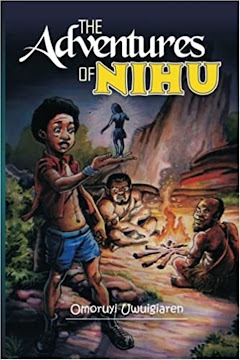John Hawkins, an Englishman, made three trips to West Africa in the 1560s, and stole Africans whom he sold to the Spanish in America. On returning to England after the first trip, his profit was so handsome that Queen Elizabeth (the first Queen Elizabeth) became interested in directly participating in his next venture: and she provided for that purpose a ship named ‘the Jesus’. Hawkins left with ‘the Jesus’ to steal some more Africans, and he returned to England with such dividends that Queen Elizabeth made him a knight. Hawkins chose as his coat of arms the representation of an African in chains.
The aforesaid, taking place in the 16th century, was to become the official commencement of the transatlantic slave trade, the European trade in African slaves that would go on to build the modern western world at the expense of west Africans. In subsequent centuries, the exploitation of Africa and African labour continued to be a source for the accumulation of capital to be reinvested in Western Europe; with the African contribution extending to European sectors such as shipping, insurance, the formation of companies, technology and the manufacture of machinery. While the Portuguese in Europe depended heavily on dye brought from Africa; the French fish industry was revived by the opening up of markets in the French slave plantation. Then there was the export from Africa, enriching many merchants in London’s Mincing Lane, ad providing the raw material for industries in England, France, Germany and North America- producing items ranging from knife handlers to piano keys.
Africa’s involvement in the transatlantic slave trade also speed up technological development in Europe. The evolution of European shipbuilding, an important aspect of technological development in European, from the 16th century right up to the 19th century was a logical consequence of their monopoly of sea commerce in that period. During that time, the Europeans initially borrowed a great deal of nautical instrumentation from the North Africans, while the latter made no further advances. Where the original European advantage was not sufficient to assure supremacy, they deliberately undermined other people’s efforts. The Indian navy, for instance, suffered from the rigid enforcement of the English Navigation Laws.
The industrial revolution, an event that instigated the birth of capitalism to the benefit of Britain and Europe, equally benefited from the transatlantic trade. The African trade led to the rise of sea-port towns such as Bristol, Liverpool, Nantes, Bordeaux and Seville. In England, Lancashire became the first centre of the industrial revolution, and the economic advance in Lancashire depended first of all on the growth of the port of Liverpool through slave trading.
Us Africans often admire and try to emulate the banking sector in the Western world- especially in countries like Britain and the USA, not knowing that the trade of African slaves helped to build it. Outstanding examples are provided in the persons of David and Alexander Barclay, who were engaging in slave trade in 1756, later using the loot to set up Barclays’ Bank. The same is to be seen in the case of Lloyds- from being a small London Coffee house to being one of the world’s largest banking and insurance houses, after dipping into profits from slave trade and slavery.
The New World (America) would have been impossible to open and be used as a constant generator of wealth, had it not been for African labour. American economic development up to mid-19th century rested squarely on foreign commerce, of which slavery was a pivot. In the 1830s, slave-grown cotton accounted for about half the value of all exports from the United States of America. In the case of the American colonies of the 18th century, it can again be observed that Africa contributed in a variety of ways – one thing leading to another. In New England, the slave trade supplied cargo for the colony’s merchant marine, stimulated the growth of their ship building industry, while also building up their towns & cities. In addition, it was the slave trade which laid the foundation for the emancipation of American colonies from British rule. Profits from the slave trade went directly into developing early political parties in the United states. More so, till today, the struggles for American emancipation (from British rule) and the abolition of slavery (in the 1860s) continue to play an indirect, albeit immense, role in America’s politics.
In all of this, one must wonder what Africa and Africans gained from the trade. Some may say western enlightenment, while others will say Christianity, but certainly no material or mental benefit. Concerning the theological benefit, the typical African Christian will not hesitate to ignore the fact that this great suffering, on his race, which still exists till date, began when a ship named ‘the Jesus’ came to steal Africans, transporting them through the Atlantic, to work, in perpetual state of destitute, for the benefits of Europeans. How can any African Christian explain the epic hypocrisy of the Christian church, in participating fully in the maintenance of slavery (including modern slavery?), while at the same time talk about saving souls. How can an African Christian turn a blind eye to the glaring fact that many ships that came were blessed by key Christian figures, such as the Pope, before departing the western world. He will quote bible verses to justify this ignorance, and proudly affirm that material or mental gain is trivial, when compared with spiritual fulfillment. He may or may not realize how contradictory he is, to hold this position, while also going to church every Sunday to pray to God for material wealth - the sort of wealth his enslaved ancestors helped to create for the white man. He won’t even realize that in Europe, the continent that enslaved and brought the religion to him, Christianity has already been sidestepped and replaced with modernity.

























































































































No comments:
Post a Comment